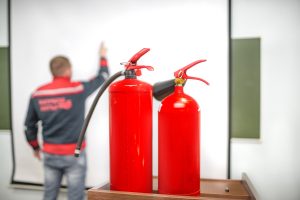Fire Protection Services
Edmonton's trusted provider for all of your fire protection needs.
COMMERCIAL FIRE PROTECTION SERVICES
Edmonton’s Best Provider for your fire safety service needs. Protect your business from going up in flames. If you need installation, monitoring, or recertifications, call us today!
Fire Protection Services: Installation, Monitoring, or recertification of Fire Equipment in Edmonton & Surrounding Areas
When it comes to the safety of your home or business, you can never be too careful. Fire protection is one area where it’s better to be safe than sorry. Fire safety equipment must be installed correctly and regularly monitored to ensure it is working properly. Advanced Fire Protection Services in Edmonton can help you with the installation, monitoring, and recertification of your fire equipment.
Advances Fire Protection can help you choose the right fire detection and alarm system for your needs based on the size and layout of your property and the type of fire risks present. They can also install and maintain fire suppression systems, such as sprinklers, to help extinguish a fire quickly. Fire protection companies can also provide fire safety training to employees and occupants of your building to ensure everyone knows what to do in the event of a fire.
Why choose Fire Protection Services?
Fire protection services are important for keeping people and property safe from fires. Fire protection includes fire detection and alarm systems, fire suppression systems, and fire safety education. Effective fire protection systems require a combination of all three elements. Fire detection and alarm systems alone cannot prevent a fire from happening, and fire suppression systems alone cannot extinguish a large or fast-moving fire. Fire safety education is essential for preventing fires and ensuring that everyone knows what to do in the event of a fire.
What is Fire Detection?
Fire detection and alarm systems help to identify a fire early and alert people so they can evacuate safely.
What is a Fire Suppression System?
Fire suppression systems help to extinguish a fire quickly and prevent it from spreading.
What is Fire Safety Education?
Fire safety education helps people understand how to prevent fires and what to do if one occurs.
The Benefits of hiring a Fire Protection Services Company:
Fire protection companies have the knowledge and experience to design, install, and maintain effective fire protection systems. They can also provide fire safety education to help people prevent fires and know what to do in the event of a fire.
Fire protection companies can help you choose the right fire detection and alarm system for your needs based on the size and layout of your property and the type of fire risks present. They can also install and maintain fire suppression systems, such as sprinklers, to help extinguish a fire quickly. Fire protection companies can also provide fire safety training to employees and occupants of your building to ensure everyone knows what to do in the event of a fire.
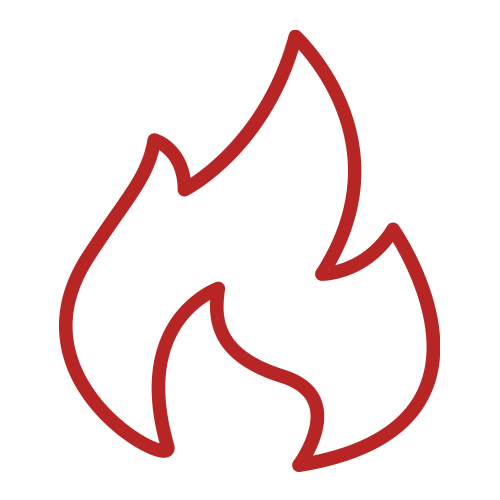
Fire Suppression Systems
Commercial Kitchens, Paint Booths, Mobile Food Trucks, and More

Sprinkler Systems
Full System Inspection, Testing, and Repairs

Fire Alarm Systems
ULC Certified for 24/7 Fire Alarm Monitoring, Maintenance, and Testing

Fire Extinguishers
Equipment Maintenance, Installation, and Sales

DSC Security System
Installation & 24/7 Monitoring

Emergency Lighting Systems
Maintenance, Installation, and Sales
EDMONTON AREA BUSINESS OWNERS TRUST ADVANCED FIRE PROTECTION SERVICES EVERY DAY.
FIRE PROTECTION SERVICES AVAILABLE IN NORTHERN ALBERTA, EDMONTON SURROUNDING AREA, & RED DEER AREA
TESTING, INSPECTIONS, & RE-CERTIFICATION
Keeping your fire suppression system working at full capacity is a necessity, our semi-annual testing & re-certification services are a perfect fit for most commercial business owners.
All inspections include documentation for your records. We adhere to the following standards: NFPA 17, NFPA 17A, NPFA 96, NFPA 2001, and ABC.
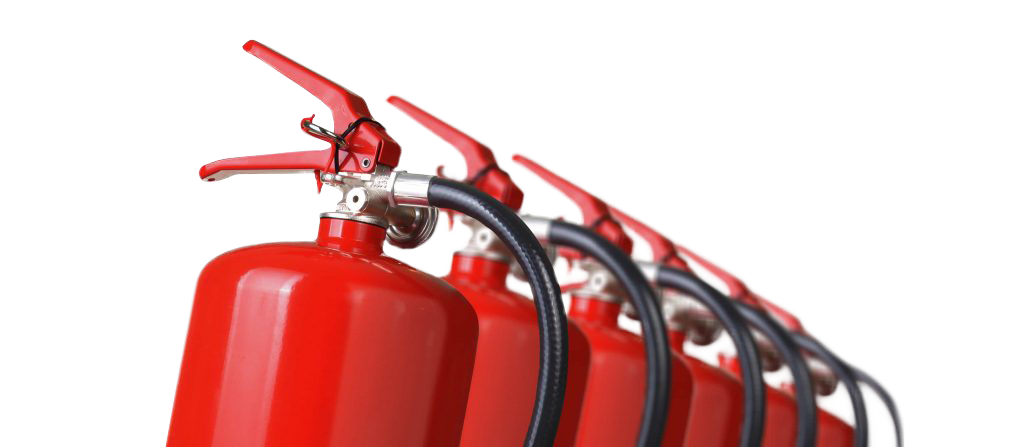
Areas We Service
Frequently Asked Questions
The effectiveness of CO2 compared to clean agents depends on the specific application and safety requirements. CO2 is highly effective at extinguishing fires where electronic and electrical risk is low, mainly because it leaves no residue and reduces the oxygen level needed to sustain a fire. However, CO2 is not typically considered better than clean agents in environments where human safety is a concern. Clean agents are specifically formulated to be safe for use in occupied spaces and do not pose the asphyxiation risk that CO2 does. Clean agents such as FM-200, Novec 1230, or FE-13 are preferred for spaces with valuable electronics or critical operations because they combine effectiveness with a high safety profile for equipment and personnel.
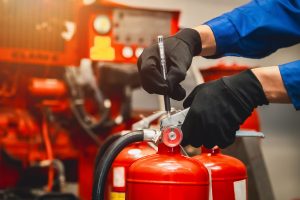
As of now, FM-200 is not being phased out globally but faces scrutiny due to its global warming potential (GWP). While FM-200 does not deplete the ozone layer, it has a high GWP, which has led to discussions about its environmental impact. Regulatory environments concerning substances with high GWP are evolving, and users of FM-200 are encouraged to keep informed about future regulations that might affect its use. Alternative agents with lower GWP, such as Novec 1230 and certain inert gases, are being considered in new installations where environmental impact is a concern. Despite this, FM-200 remains a popular choice due to its effectiveness, safety profile, and the fact that it leaves no residue, making it suitable for protecting high-value assets and electronics.
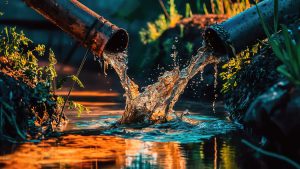
The main difference between clean agents and inert gases in fire suppression involves their composition and fire extinguishing method. Clean agents like FM-200, Novec 1230, and FE-13 are chemical agents that extinguish a fire primarily by interrupting the chemical reaction of the fire. These agents are generally stored as liquids and vaporize when discharged. In contrast, inert gases such as Inergen, Argonite, and nitrogen work by reducing the oxygen concentration around the fire to below the level that supports combustion. Inert gases are stored as compressed and remain in gaseous form when discharged. Both types are designed to minimize damage to equipment and are safe for use in occupied spaces. Still, clean agents offer a faster discharge and quicker cleanup than inert gases, which might require more time to ventilate the affected area after discharge.

Carbon dioxide (CO2) is often used in fire suppression systems, particularly in situations where a quick, efficient extinguishing method is needed without concern for residue. However, CO2 does not meet all the criteria to be classified strictly as a “clean agent” by standards such as those set by the National Fire Protection Association (NFPA). While CO2 is effective in suppressing fires by reducing the oxygen available to fuel a fire and by cooling the fire, it can pose serious risks to human safety if deployed in occupied spaces. Unlike other clean agents that are designed to be safe for occupied environments, CO2 can cause asphyxiation in high concentrations, making it unsuitable for areas where people cannot quickly evacuate. Therefore, CO2 is typically used in unoccupied spaces or where rapid evacuation is possible.
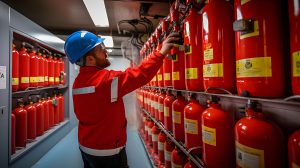
Clean agent fire suppression systems typically use gases that are electrically non-conductive, leave no residue upon evaporation, and are safe for humans. Common gases used in these systems include FM-200 (heptafluoropropane), FE-13 (trifluoromethane), Novec 1230 (fluoroketone), and Inergen (a blend of nitrogen, argon, and carbon dioxide). Each of these agents has unique properties suited to different fire suppression needs, but all share the characteristics that define clean agents: they are clean, safe, and effective at suppressing various fires without damaging sensitive equipment or the environment. These gases are typically selected based on the specific requirements of the space to be protected, including the fire risk, the value of the assets, and the occupancy characteristics.
